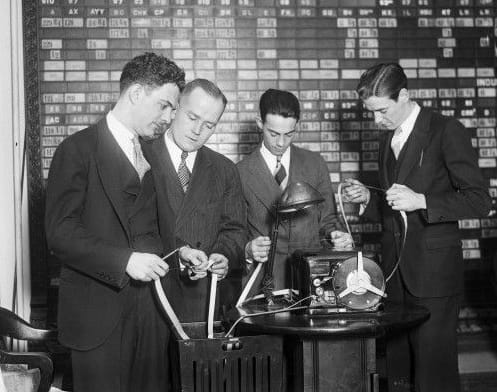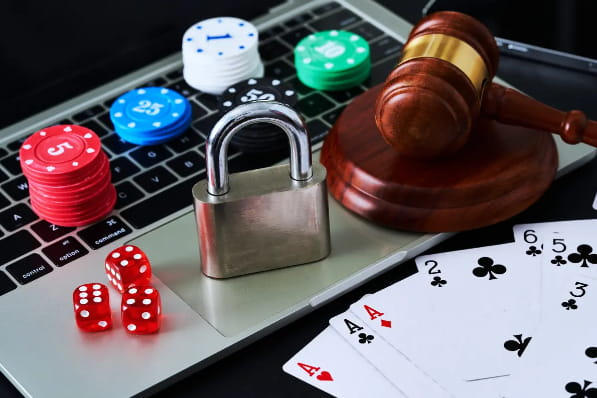A Bookmaker in Betting is the one who keeps the whole betting system running. They set the odds, take bets, and make sure payouts are handled fairly, whether it’s on cricket betting sites, casino games, or any other sport.
Most bookmakers today work through bookmaker online platforms or apps, where everything moves fast, but the idea stays the same: balance the bets and keep the market steady.
With so many online bookies and new players joining from India, it helps to understand how a bookmaker actually works. Once you get that, reading odds and making better betting choices becomes much easier, and that’s where this guide begins.
About Bookmakers in Betting – In Short
- Bookmakers run the betting system, setting odds and managing bets.
- Their goal is balance, not to gamble, but to profit through margins.
- They exist as shops, websites, apps, and exchanges.
- Licensed bookmakers ensure safer, fairer betting.
- Knowing how they work helps you bet smarter, especially in India.
What Is a Bookmaker in Betting – Role Explained
A bookmaker in betting is a person or company that offers odds on different events and accepts bets from people. They also manage payouts when bets win. The bookmaker’s main job is to create betting markets and keep them balanced.
You might also hear terms like “bookie” or “sportsbook.” These all refer to the same idea: a service that takes bets and sets the prices for those bets.

Think of a bookmaker like a market trader. Just as traders set prices for stocks based on demand, online bookmakers or cricket bookies set odds based on how people are betting and what might happen on different betting sites cricket fans use.
What Are the Different Types Of Bookmakers In Betting
Bookmakers come in different forms depending on where and how they operate. Understanding the types helps you know what to expect from each kind.
1. Traditional Bookmakers
Traditional Bookmakers are physical betting operators, often found at racetracks or in betting shops. You place bets in person, usually using cash, and receive a printed slip.
2. Online Bookmakers
Online bookmakers operate through websites or mobile apps. They offer a wide range of markets, including sports, casino games, and more.
3. Local or Niche Bookmakers
Local or Niche Bookmakers are small-scale bookmakers that operate within a limited area or offer bets on specific topics. They may not always be licensed.
4. Betting Exchanges
A betting exchange allows users to bet against each other instead of the bookmaker. You can either back an outcome or lay it, acting as the bookmaker yourself.
5. In-Play and Live Betting Bookmakers
In-Play and Live Betting Bookmakers let you place bets during an event, like a live cricket or football match. Odds change quickly as the game progresses.
How Bookmakers Work In Betting?
Bookmakers play a crucial role in shaping the way betting works. They manage the entire process, from setting odds to paying out winnings, while platforms like Bookmaker online keep the business balanced and profitable.
Here’s how the process typically works:
- Setting the Odds: Bookmakers set odds based on data, past performance, team news, and expected outcomes. They also factor in public opinion and betting patterns.
- Accepting Bets: Once the odds are live, users can place bets either online or in person. The bookmaker records each bet and locks in the price at the time of placing.
- Managing Payouts: When the outcome is decided, the bookmaker pays out winnings based on the odds agreed upon. This is usually done automatically online or manually in physical setups.
- Balancing the Market: Bookmakers aim to attract balanced betting on all sides of an event. This helps reduce risk and ensures they can make a profit regardless of the result.
Real-World Bookmaker Example
Imagine a football match where Team A and Team B both have strong fan bases. If a large number of people start placing bets on Team A, the bookmaker will respond by adjusting the odds to make betting on Team B more appealing. This shift helps balance the betting pool and reduces the bookmaker’s risk of heavy losses.
This helps them spread the risk and avoid large losses.
How Bookmakers Make Money in Betting
Bookmakers don’t depend on winning or losing bets to earn money. Instead, they build a small profit margin into the odds. This margin is enough to give them steady earnings over time.
- Vigorish (or Vig): This is the bookmaker’s fee, built into the odds. It ensures they make money regardless of who wins the bet.
- Overround Strategy: Bookmakers adjust odds so that the total implied probability is slightly above 100%. This creates a guaranteed edge in their favor.
- Risk Management: They use tools like stake limits, hedging, or changing odds to avoid large losses when too much money is placed on one outcome.
So, while individual bets may win or lose, bookmakers stay profitable through careful planning and margin control.
Understanding Betting Odds: Formats, Adjustments, and Strategy
Bookmakers use a mix of data, market behavior, and risk strategy to set and adjust odds. These odds reflect the likelihood of outcomes but also ensure the bookmaker’s margin is protected.
1. Types of Odds Formats
Bookmakers use different ways to show odds—decimal (e.g., 2.00), fractional (e.g., 1/1), or American (e.g., +100). The format depends on the region and user preference.
Decimal odds are common globally, including in India, and show the total return per unit staked. Fractional is popular in the UK, while American is used mainly in the US.
2. What Affects the Odds?
Odds aren’t fixed; they shift based on real-world events like injuries, team news, or weather. Betting volume also plays a key role.
If many people bet on one outcome, bookmakers often shorten the odds to reduce risk and encourage bets on the other side.
3. Why Odds Differ Between Bookmakers
Different bookmakers use different risk models, data sources, and margin levels. This leads to variation in the odds offered across platforms.
Some bookmakers focus on offering sharp odds with lower margins, while others adjust more conservatively to limit potential loss.
4. Understanding Implied Probability
Odds represent the chance of something happening. Bookmakers turn odds into implied probabilities to manage risk.
For example, decimal odds of 2.00 suggest a 50% chance. Bookmakers tweak this probability slightly to include their margin, making the total over 100%.
5. In-Play Betting and Live Odds
In live betting, odds change quickly as the event unfolds. A goal, red card, or sudden shift can change the numbers in seconds.
Bookmakers use real-time data and automated systems to update these odds, making it exciting but also fast-paced and riskier for bettors.
Legal vs. Illegal Bookmakers in India and Worldwide
When betting online or offline, the distinction between legal and illegal bookmakers is crucial. Legal bookmakers are licensed by recognized authorities and operate under clear regulations.
They ensure user verification, secure transactions, fair odds, and timely payouts, which is why trusted online betting sites cricket fans use focus strongly on these checks.

To help you understand the differences better, here’s a side-by-side comparison:
| Feature | Legal Bookmakers | Illegal Bookmakers |
|---|---|---|
| Licensing | Licensed by bodies like UKGC, MGA, and Curacao | Operate without official approval |
| User Verification (KYC) | Requires PAN, Aadhaar, and Passport for ID checks | Often skips identity verification |
| Odds Offered | Transparent and market-driven | Sometimes inflated or deceptive |
| Payout Speed | Fast and guaranteed as per terms | Often delayed or denied without justification |
| Payment Safety | Encrypted gateways like UPI, NetBanking, Paytm | Risk of data breaches or insecure payment systems |
To stay safe, always use platforms that show proper licenses, have clear terms, and follow secure practices.
How To Bet With a Bookmaker Safely In India (Step-by-Step Guides)
Safe betting in India involves selecting licensed platforms, following the proper steps for account setup, and utilizing tools that promote responsible and ethical play.

Step 1: Create an Account
Sign up on a legal, verified platform that accepts Indian users and displays its license clearly.
Step 2: Verify Your Identity
Complete KYC as per the guide and use documents like PAN card, Aadhaar, or passport for account safety and withdrawals.
Step 3: Deposit Funds Securely
Use trusted payment options like UPI, NetBanking, Paytm, or other e-wallets that suit Indian users.
Step 4: Place a Bet
Browse sports, casino, or other markets and place your bet using the platform’s bet slip.
Step 5: Track and Withdraw
Monitor your results and withdraw winnings securely once the bet is settled.
How Reputable Bookmakers Promote Responsible Betting
Trusted bookmakers support responsible gambling to help users stay in control. They offer tools that limit how much and how often you bet.
These features include deposit limits, time-out options, and reminders during long sessions. Some also provide self-exclusion tools, allowing users to block access to their accounts temporarily or permanently.
Such practices show the bookmaker’s commitment to safer betting for everyone.
Check out What Are Odds in Betting to learn how betting odds affect your winnings.
What Do Ethical Bookmakers Avoid
Ethical bookmakers avoid practices that mislead or harm users. They do not advertise to minors or vulnerable people, and they stay clear of confusing bonus offers with hidden terms.
They also ensure full transparency in their rules, payout processes, and privacy policies, focusing on fairness rather than fast profits.
How to Choose the Right Bookmaker for Betting?
Choosing the right bookmaker can improve your betting experience and reduce risks. Here are the key factors to check before signing up:
1. Licensing and Regulation
Always choose a bookmaker licensed by trusted authorities, such as the UKGC, MGA, or Curacao. A valid license ensures basic safety, fair play, and dispute resolution.
2. Betting Markets Offered
Look for platforms that offer a wide range of betting options, including sports, live casinos, esports, and novelty markets. More variety gives you more control.
3. Payment Options
Select bookmakers that support Indian-friendly payment methods, such as UPI, Net Banking, Paytm, and cryptocurrency. Easy deposits and withdrawals are essential.
4. Odds and Platform Quality
Compare odds across platforms to get better value. Additionally, ensure the website or app is fast, user-friendly, and reliable.
5. Bonus Terms and User Reviews
Avoid falling for flashy bonuses without reading the terms. Also, check user feedback and forums for honest opinions about the platform.
Safe Betting Tips:
Conclusion: A Bookmaker In Betting Controls Odds, Bets, And Market Stability
Knowing how a bookmaker works, how they set odds, manage risks, and earn profits gives you an edge as a bettor. It helps you choose safer platforms, read odds with a better understanding, and avoid poor decisions.
Whether you’re betting for fun or with a strategy, understanding the bookmaker’s role can make your experience more informed, secure, and responsible.
FAQs
A bookmaker and sportsbook are often the same, but “sportsbook” typically refers to the platform or interface, while “bookmaker” can also describe the person or company managing the odds and bets.
Most sports betting is illegal under national law, but some states regulate it. Many offshore online bookmakers accept Indian users, though legal clarity is still evolving.
They calculate the probability of outcomes using statistics, market sentiment, and historical data, then add a margin (vig) for profit.
Yes, if they are licensed by reputable authorities (UKGC, MGA, etc.), use encrypted payment gateways, and have transparent terms.
Bookmakers offer simplicity and fixed odds, which suit beginners. Exchanges offer better odds and more control, but they involve more risk and complexity.